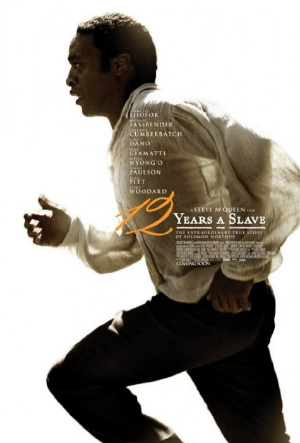12 Years a Slave: an honest reflection
As an African scholar who has studied the discourse of slavery, I was nevertheless stunned by the abuse suffered by the people enslaved in the film, writes Israel Olofinjana. But my real anger is that the legacies of slavery are still very much with us today
12 Years a Slave is a biographical film about a free African American Solomon Northup who was abducted and enslaved. The film is an adaptation of the 1853 autobiography of the same name by Solomon Northup.

I was privileged to watch the film last year at an advanced screening with others including Chewetel Ejiofor (the lead actor). My recollection of this, the audience response and the Q&A afterwards was silence, tears and a serious atmosphere.
Without giving any spoilers, the film speaks about the discourse of slavery from different points of view, both from the oppressors and the oppressed. It helps us to understand the mental and psychological trauma that people enslaved have to go through. It communicated strongly and demonstrated with brilliant camera angles and cinematography how enslaved women were abused physically, sexually and mentally. This is not an area often emphasised in slave discourse, and Steve McQueen’s direction has brought it to the world’s attention.
As an African scholar who has studied and researched the discourse of slavery, I was still stunned and disturbed by some of the abuse suffered by the people enslaved in the film. At one point I felt anger, not just about what I watching or because of thinking about what my ancestors would have gone through during the slave trade, but at the fact that the legacies of slavery are still very much with us today. This can be seen in the issues of immigration (especially when immigrants are stereotyped as poor and draining the country’s resources), neo colonialism and global poverty.
Steve McQueen’s 12 Years a Slave gives us a window into the past to try and understand how people enslaved were treated as objects and not humans. This is important for our collective memory if we are to address the issues in the present. How do we remember the past? For American history the slave discourse is part of that past, but I am afraid that in the British context, although different, the elephant in the room has not been fully addressed. The question is still to be asked, how did the British Empire with its colonisation and imperialistic policies govern its subjects around the world? How is this being taught in our schools today and what versions are we feeding the next generation?
Another angle the film reveals is the role of Christianity in the slave discourse. This can be seen in the oppressors using the Bible out of context to justify their actions. On the other hand the oppressed used the same Bible to inspire hope that one day they will be free. This tension between the Bible used as a tool of oppression as well as a source of freedom is very true to the history of the slave trade. This understanding is the reason why Black Theology takes seriously the experiences of the oppressed and we have a lot to learn from Black Theologians with regards to black experiences.
When watching the film I was very angry at the injustice I saw. I am sure that many others will be too. It is interesting that it has come out around the same time as Nelson Mandela’s film, Long Walk to Freedom, made more significant by his death. The message Mandela’s death and film communicates is forgiveness. But let's not forget that forgiveness and justice go together. Steve McQueen’s 12 Years a Slave reminds us that we still need to have some honest conversations.
12 Years a Slave is released in the UK on 10 January. The Damaris Trust has produced free community resources to accompany the film.
The Revd Israel Olofinjana is an ordained and accredited Baptist minister and pastored Crofton Park Baptist Church before becoming the Team Leader at Catford Community Church in September 2011.
He blogs and is the author of Turning the Tables on Mission
Israel Olofinjana, 10/01/2014